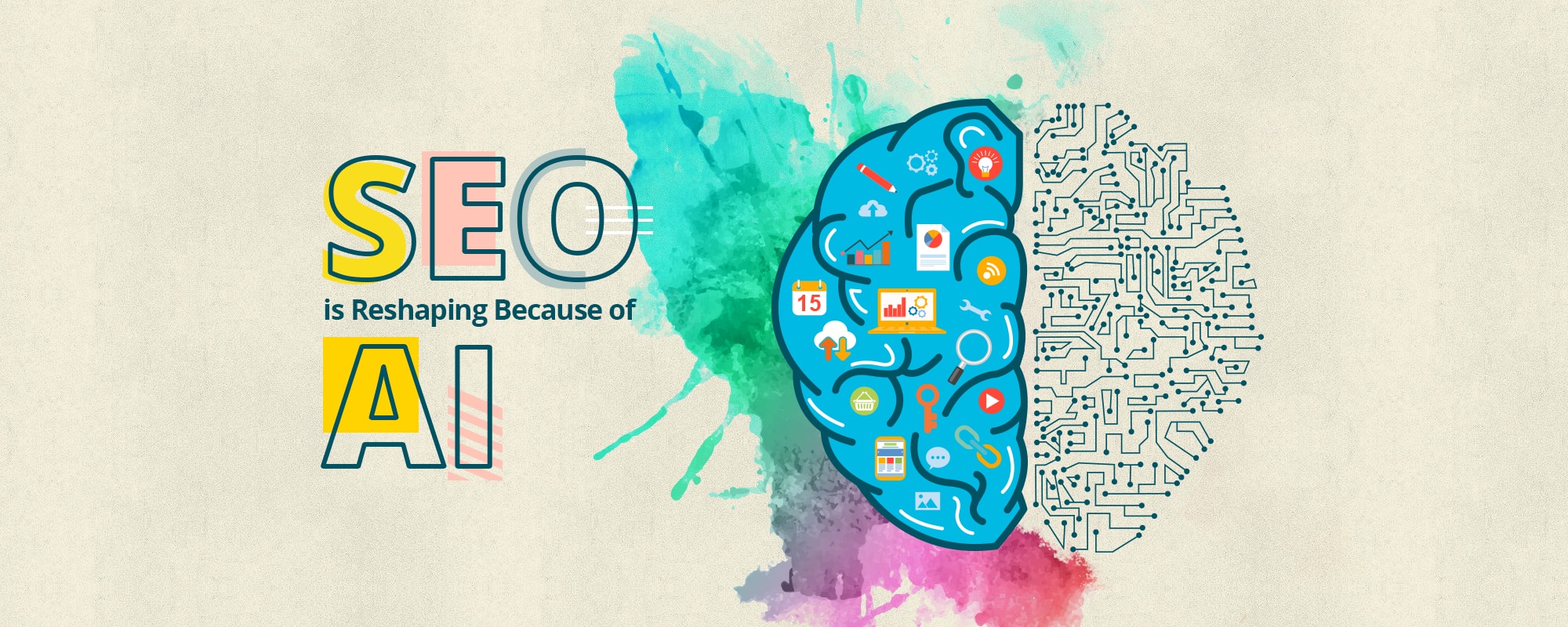Artificial intelligence has always instigated curious minds to dig deeper and see how it works and how to use it to assist humans in the most suitable ways. Come 2017 and Google RankBrain has started making rounds in the web world faster than when it came into the picture in 2015.For now, RankBrain is the closest synonym to AI for search engines. AI has already marked its territory in numerous fields like robotics, customer services, medicine, etc., and now, it is high time SEO also benefits from this marvel. Here’s how AI will change the world of SEO for better.
More importance to visual content for SEO optimization
Sam Mallikarjunan of HubSpot Labs (Head of Growth) said that SEO will be tremendously influenced by visual content in coming years. AI has made search engines intelligent enough to know how to analyze visual content, especially in case of videos. Google SERPs give precedence to YouTube videos, and the introduction of AI has made it possible for Google to display the most relevant videos.
Video SEO will now require a video publisher to optimize target keywords, Meta tags, descriptions, video length, a keyword focused & comprehensible caption around the video because RankBrain can “watch” a video and tell what it’s about.
Content quality, relevance and focus is going to take center stage
A search result is said to be successful when the search intent of the user and the results provided for the search are matched. RankBrain, the artificial intelligence system developed by Google has remarkable content analysis capabilities. It is able to understand the context of content and judges it on the basis of relevance with the search query entered by the end user.
Content has always been the king, but now, the king has to work harder than ever before. Keyword density has been a thing of the past, and has made way for things that are more important for users,things such as keyword relevance, contextual coherence and value. Every SEO project is different, and there is a different strategy to execute each of them effectively and efficiently. Take reference from different case studies pertaining to different projects.
More weightage to real time data
Whether we talk about news updates, weather news or live soccer score, results for these kinds of searches have to be real time, unless asked otherwise. Real time data is a major point to focus on for content publishers. Staying updated with news and curating fresh content on the go is important, reorganizing & revising a pre-existing content is also equally vital.
Now the question comes, “How is AI going to help reorganized and revised content?” the answer lies in the limitations of search algorithms. Algorithms run the same query in the same manner every time. But AI, on the other hand, learns and grows with time and does a better, deeper search and thus is capable of driving better results over time on its own.
Related Read: 5 Technologies that will drive entrepreneurship for next few years
More emphasis on niche specific keywords to avoid misclassification
Certain keywords are broad spectrum, which means that they can be easily used for more than one niche. Regular algorithms have a limited capability of classifying the content as per the niche and sometimes, the user also gets results that are nowhere close to the query.
This is where AI will come to save the day. With deep learning and dynamic content, search engine crawlers are not only going to look for the keywords in the content, but also analyze the whole content for ensuring whether the niche of the content matches with that of the user’s query. This is going to be a major game changer.
Get the top-notch SEO Services at affordable price.
Voice search will get smarter
Voice search has always been different from standard web search. Instead of typing “pizza in San Jose”, an iPhone user simply tells Siri to “Call the <xyz> pizza for me” and voila, the call gets placed. Studies say that voice search uses more words in comparison to conventional search methods and has a more conversational approach.
AI based search understands that a user is asking for something specific and thus waits for the user to complete his query. It’s time to amp-up your SEO game around voice searches too, because that’s how things are going to happen. See what keywords people use in their voice search, what words are common in voice as well as traditional searches, and build your strategy accordingly.
No more black-hat strategies
Shortcuts and black hat tricks that were once used by SEO “Experts” are already marginalized by the intelligent algorithms used by Google. However, these algorithms are not fail safe and thus, some black hat maestros are able to leverage these loopholes and trick the search engine.
AI will filter out any scope for outsmarting the system. As a result, long-term SEO efforts that bring out organic results with due course of time are going to stay, and tricksters will be left with only two options: either go white label, or go home.
Conclusion
With the points we discussed above, it is evident that AI is going to transform the way businesses used to carry out their SEO practices. Algorithms only search for the content; AI takes context and relevance into account. Content publishers will now need to build their content keeping RankBrain in mind.The times are calling for a new dawn; make sure you are ready to embark on this journey.


Comments (1)
 Sam singh
Sam singh
Very informative blog……Artificial intelligence and its impact on different industries have been a hot topic of discussion for the past few years, and with good reason. SEO specialists started freaking out a few years ago when Google introduced RankBrain, “a machine learning-based search algorithm.